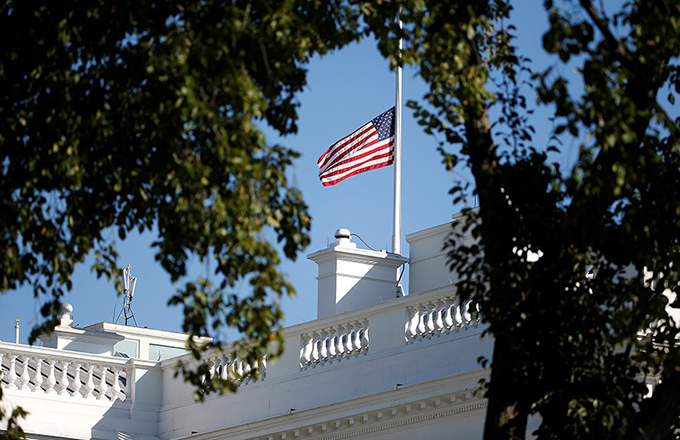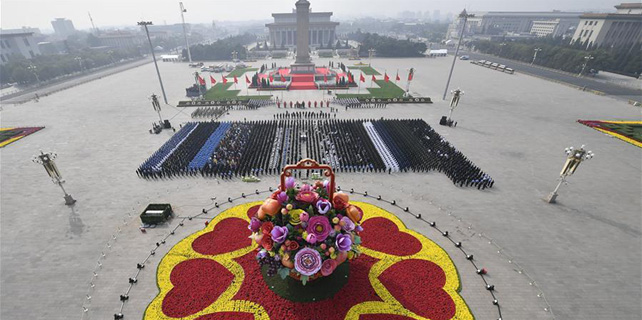UK economy stuck in low gear, worries grow as BoE prepares to hike rates
LONDON - Britain's economy remained stuck in low gear in the third quarter but price pressures grew further, according to a business survey that probably keeps the Bank of England on track to raise interest rates.
The IHS Markit/CIPS Purchasing Managers' Index (PMI) also showed businesses were increasingly worried about the outlook as Britain heads towards its departure from the European Union with little clear sign of its future trading relationship.
The PMI showed growth in services activity unexpectedly sped up a little last month, compensating for weaker readings in the manufacturing and construction industries reported earlier in the week.
Taking the three sector surveys together, Britain's economy probably expanded at a quarterly rate of around 0.3 percent in the July-September period, matching its second-quarter performance, survey compiler IHS Markit said.
"The surveys ... portray an economy struggling with the unwelcome combination of sluggish growth and rising prices," Chris Williamson, chief business economist at IHS Markit, said.
The services PMI picked up to 53.6 in September, slightly better than expectations in a Reuters poll of economists for it to hold at August's level of 53.2.
Despite the improvement, growth among British firms lagged behind that of its peers in a resurgent euro zone.
There were also some discouraging signs for the months ahead: new orders increased at the weakest pace since August last year, inflation pressures jumped at the fastest pace for several months and confidence sagged.
Services companies cited Brexit-related uncertainty and worries about the economy as reasons for their darker mood.
Britain's economy initially withstood the shock of the June 2016 vote to leave the European Union. But growth began to slow sharply this year as inflation rose following the pound's post-Brexit vote plunge, which hit the spending power of households.
Against that background, the BoE surprised investors last month when it said most of its interest rate-setters believed they were likely to raise borrowing costs soon, citing a reduced tolerance for above-target inflation.
Costs faced by services companies rose at the fastest pace since February, while they hiked selling prices at the quickest rate in five months, suggesting inflation could top 3 percent in the coming months.
"The rise in price pressures will pour further fuel on expectations that the Bank of England will soon follow-up on its increasingly hawkish rhetoric and hike interest rates," Williamson said.
IHS Markit's composite PMI, which combines services, manufacturing and construction, edged down to a seven-month low of 53.6 in September - leaving it some way off levels that would normally be consistent with BoE rate hikes.
Most economists polled by Reuters have said they expect a BoE rate hike in November, even if they consider such a move to be premature.









